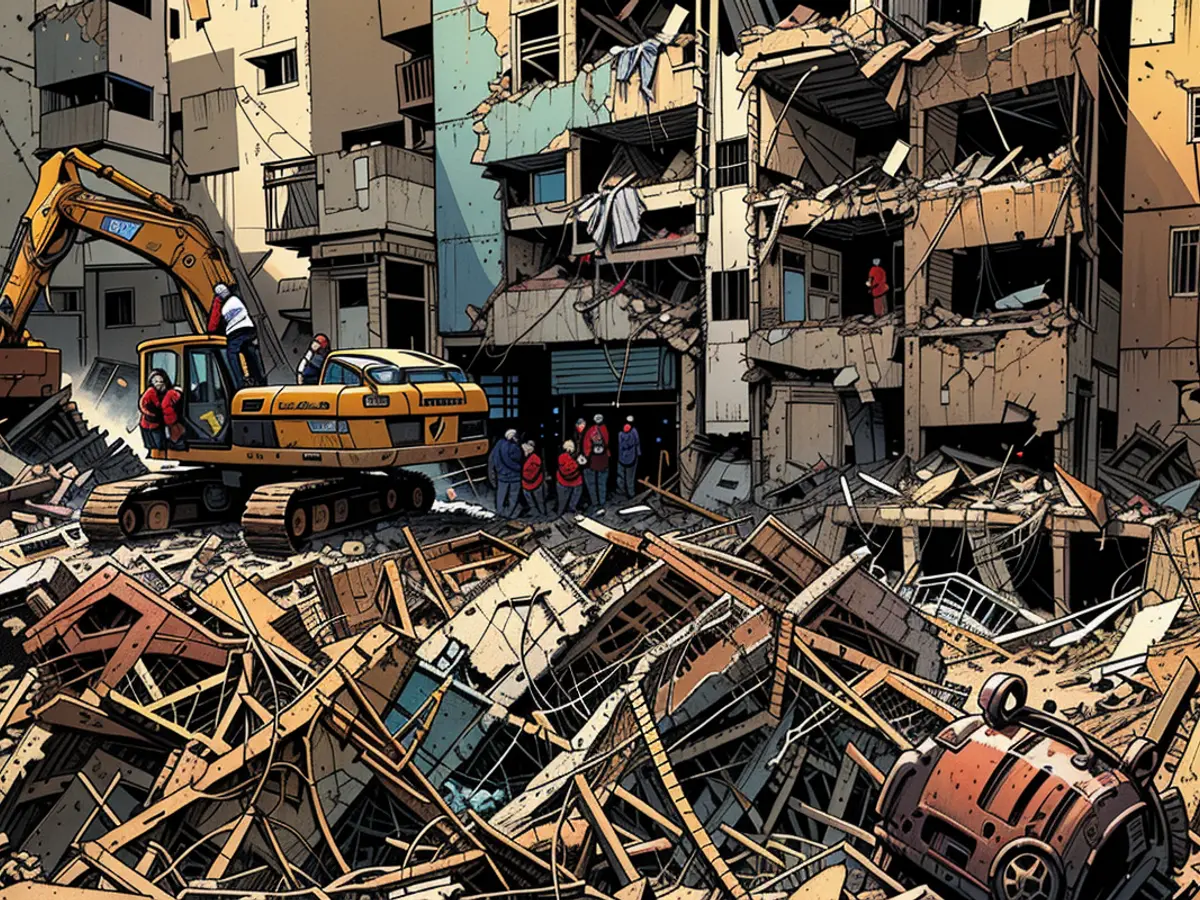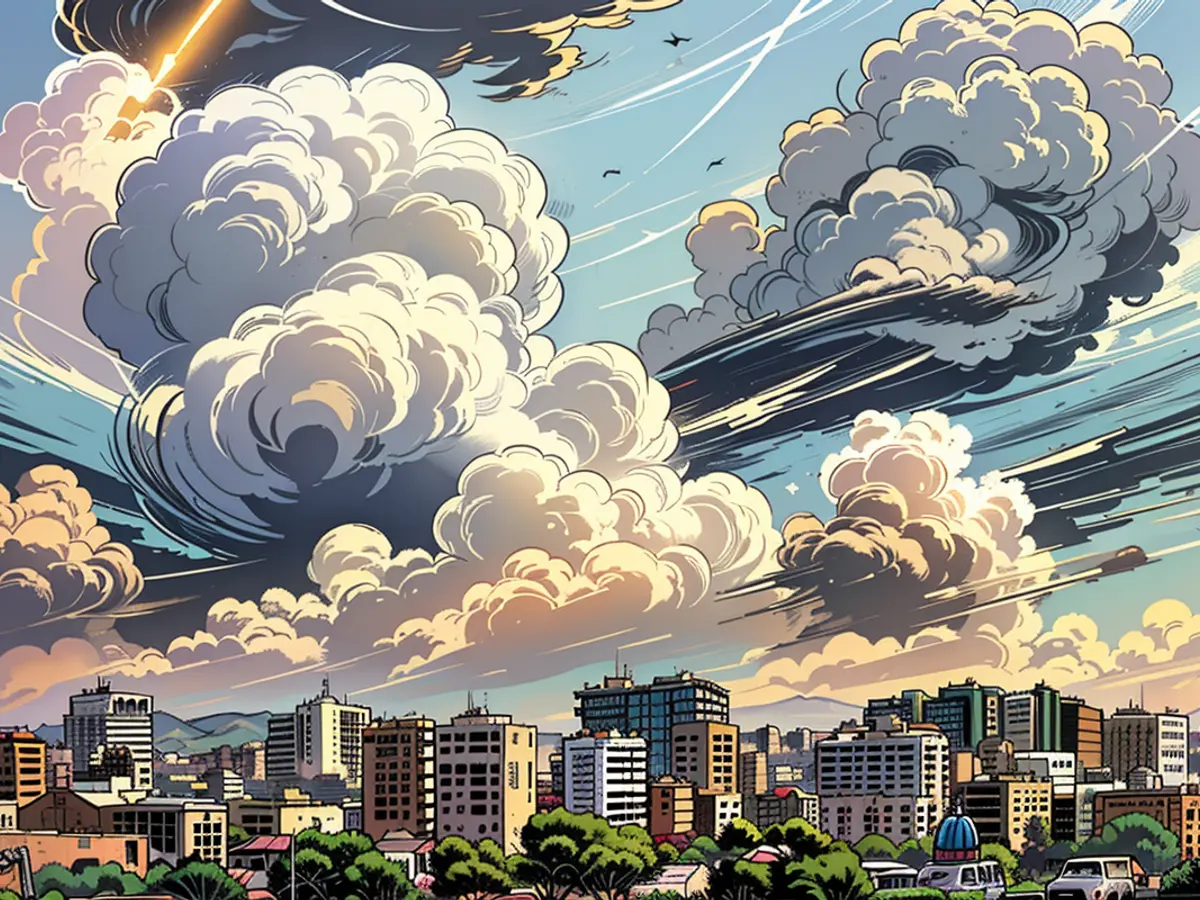Israel engaging in a daring tactic with its revised Hezbollah approach
It's a questionable strategy, potentially crafted to deceive their troubled ally, the United States, into believing that a diplomatic solution, which Washington has invested nearly embarrassing amounts of effort into, is still Israel's ambition.
The more harm Hezbollah experiences now, the more plausible a short-term win for Israel has seemed. A full-scale ground war between a drained, fragmented Israeli armed force and a skilled, enraged Hezbollah within southern Lebanon would likely be catastrophic for Israel. It's exactly the scenario that the militant group has been eagerly anticipating. Nevertheless, it's a battle Israel doesn't feel compelled to engage in at the moment.
The previous week demonstrated the vast technological difference between the two adversaries. One is forced to rely on technology from twenty years ago to evade Israeli spyware and surveillance. The other is adept at penetrating the limited supply chain of that very device – thousands of pagers from Taiwan – and implanting explosives that maim numerous senior Hezbollah operatives at once, while simultaneously killing children and injuring thousands more.
If that merciless assault weren't enough, within twenty-four hours they assassinated even more militants by detonating a series of walkie-talkie bombs, even at funerals for those assassinated the previous day. The resulting panic reportedly allowed Israel to identify numerous mistakes made by Hezbollah members, resulting in the assassination of multiple senior figures, including a very senior commander, Ibrahim Aqil, in a massive blast in southern Beirut.
Throughout this ordeal, Hezbollah positions in the south of Lebanon have been hit by repeated airstrikes. There has been substantial damage to command, control, morale, and equipment, all without a single Israeli soldier setting foot on the ground.
It is crucial not to underestimate the psychological and operational impact of an attack such as the pager onslaught would have on any adversary. Hezbollah members are likely unsure of who they can still contact or communicate with; they will disperse; they will search for direction; they may not settle on a unified response; they may even engage in brief internal disputes. In time, they may recover and strike back harshly, but for now, Israel is making the most of the initial confusion.
Where does the “de-escalation” fit in? The Israeli plan presumably involves convincing Hezbollah that it has suffered such severe damage and fears further damage to Lebanon's civilians so deeply that it agrees to retreat to the north of the Litani River and give in to Israel's demands, allowing Israeli civilians in the northern part of their own country to return home safely. It would be challenging for Hassan Nasrallah – Hezbollah's measured and focused leader who also urged his men to switch to pagers from smartphones – to present such a policy as a sign of weakness after the past week. He may be able to present it as a strategy of strategic patience – to suggest it's their only option to save Lebanon and they may have an opportunity to fight another day – but it would be difficult.
The Israelis, who appear to have comprehensively infiltrated Hezbollah's communications, likely have a more detailed understanding of the militant's internal discussions than they publicly admit. They may have assessed that Nasrallah must eventually succumb, as his organization has depleted numerous experienced fighters in Syria's civil war.
Conversely, they might have calculated that Nasrallah is truly cornered and will have to retaliate with a sustained rocket barrage against Israeli towns. In that scenario, Israeli Prime Minister Benjamin Netanyahu would be left with a questionable justification for starting a larger conflict – "They initiated it."
Militarily, the past week has been disastrous for Hezbollah. It raises comparisons to the moment Russia invaded Ukraine in 2022 – when a revered monolith was exposed as neither as modern nor powerful as previously thought. Based on Hezbollah's recent vulnerabilities, Israel may feel confident it can continue to inflict heavy damage – that its foe lacks the capacity to hit back effectively. Hezbollah can fire better rockets, certainly, but many are intercepted, and they do not have an inexhaustible supply. Does Nasrallah believe that this is the moment to fire his one big barrage? Or would his Iranian allies encourage him to wait for another opportunity?
If Hezbollah withdraws voluntarily – or refuses to, and the conflict continues – Israel can still target after target with its superior airforce, with little immediate concern that Hezbollah can exact too high a price on its own population centres. Israel has demonstrated its disregard for civilian collateral damage in Gaza. The impact of any increased violence on ordinary Lebanese people will be a double-edged sword: it will exacerbate already existing hatred towards Israel, but it will also stir up enmity towards the damage and chaos that Hezbollah's attacks have caused in Lebanon.
Perhaps Netanyahu – who appears to have prioritized military solutions over the past year, possibly for his own personal political gain – believes he can bomb Hezbollah into irrelevance. Israel might inflict so much damage that it brings about a qualitative change in what Hezbollah can achieve. However, wars rarely conclude there.
Hezbollah will rebuild, as its purpose is rooted in a particular place and people – Lebanon and its Shia. The lesson NATO slowly learnt in Afghanistan should be carefully considered here – that eliminating numerous mid-level commanders in regular night raids leaves only their disgruntled, radicalized sons to negotiate with in the future. Israel is displaying its expertise in warfare and its ability to exact severe costs while ignoring civilian casualties. But the path forward for Israel remains uncertain.
It might not significantly bother Netanyahu's military council if Hezbollah decides to retreat or gets forced out through bombings. However, history has shown that violence in this part of the world often reverberates, frequently returning with increased ferocity and unpredictability, to haunt the instigators in the future years.
The international community, particularly the World, has been closely monitoring the ongoing conflict between Israel and Hezbollah in the Middle East. Despite the significant damage inflicted on Hezbollah, there are concerns about the potential escalation of the conflict and its implications on regional stability.








